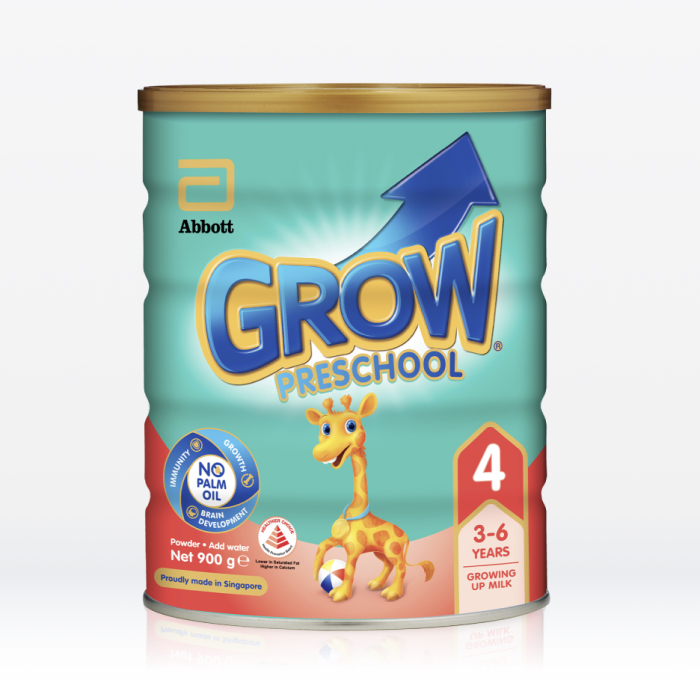Grow® Preschool Stage 4
- Main Image
-

- Subtitle
- 3 years onwards
- Title
- GROW® Preschool Stage 4
- Detail Page Path
Social interaction is an important way for young children to learn and grow as individuals. Through interactions with others, a child learns to form emotions, imitate actions, while learning to understand and empathise with the feelings and intentions of family and friends.
Research on functions of the brain has also shown that social interaction sharpens cognitive skills1, while boosting the production of new brain cells and synapses to help develop strong and long lasting memories.
Frequent interactions can also help to boost the self-esteem of children, as your little ones become more confident about expressing how they feel to the people around them.
Here are four simple ways you can encourage your child to interact with others.
Use mealtime as an opportunity to interact with your child. Ask your little ones about how their day went. This will encourage your child to recall the highlights of the day, thus improving their memory skills.
Organise playgroups at home so that your child can mingle with and learn from other children. This exposure is not only memorable but educational as well.
Enrol your children in activities that they are interested in. Besides picking up new hobbies, such classes can act as opportunities for your child to socialise and make new friends.
If your child is shy or refuses to interact, gently probe and ask subtle questions to find out why. Your child’s answers may also give a clearer indication of his or her social personality type and how your little one would interact with others.
Children who are more extroverted tend to be energised by social interactions while introverted children get easily tired after interacting with others.
Understand that introversion is normal and not something to be ashamed about. Children who are more introverted may take more time to warm up to the people around them, so be patient with them until they are ready to socialise.
Whether your child’s personality more introverted or extroverted, you should treasure him for who he is. Appreciate the thoughtfulness and kindness that often comes with your child’s introversion, as well as the natural exuberance of your other more extroverted child.
References:
1Leslie F. Clark (1993). Stress and the Cognitive-Conversational Benefits of Social Interaction. Journal of Social and Clinical Psychology: Vol. 12, No. 1, pp. 25-55. Retrieved on 27/8/2015 from Guilford Press: http://guilfordjournals.com/doi/abs/10.1521/jscp.1993.12.1.25.

A Good milk formula contains no palm oil! What savvy parents need to know about fat blends in milk powders.

Worried that your active child’s attention span seems too short to absorb new information? Get to expand his or her knowledge!

How to help your child with language development? Learning more than one language is related to the number of connections in the brain formed.

How to make learning for kids fun to nurture your child's curiosity and help cultivate the interest in learning. Come out, let's get learning!

Choose a formula with no palm olein for with better absorption of key nutrients such as DHA, AA and calcium.
You are about to exit for another Abbott country or region specific website.
Please be aware that the website you have requested is intended for the residents of a particular country or region, as noted on that site. As a result, the site may contain information on pharmaceuticals, medical devices and other products or uses of those products that are not approved in other countries or regions.
The website you have requested also may not be optimized for your specific screen size.
Do you wish to continue and exit this website?